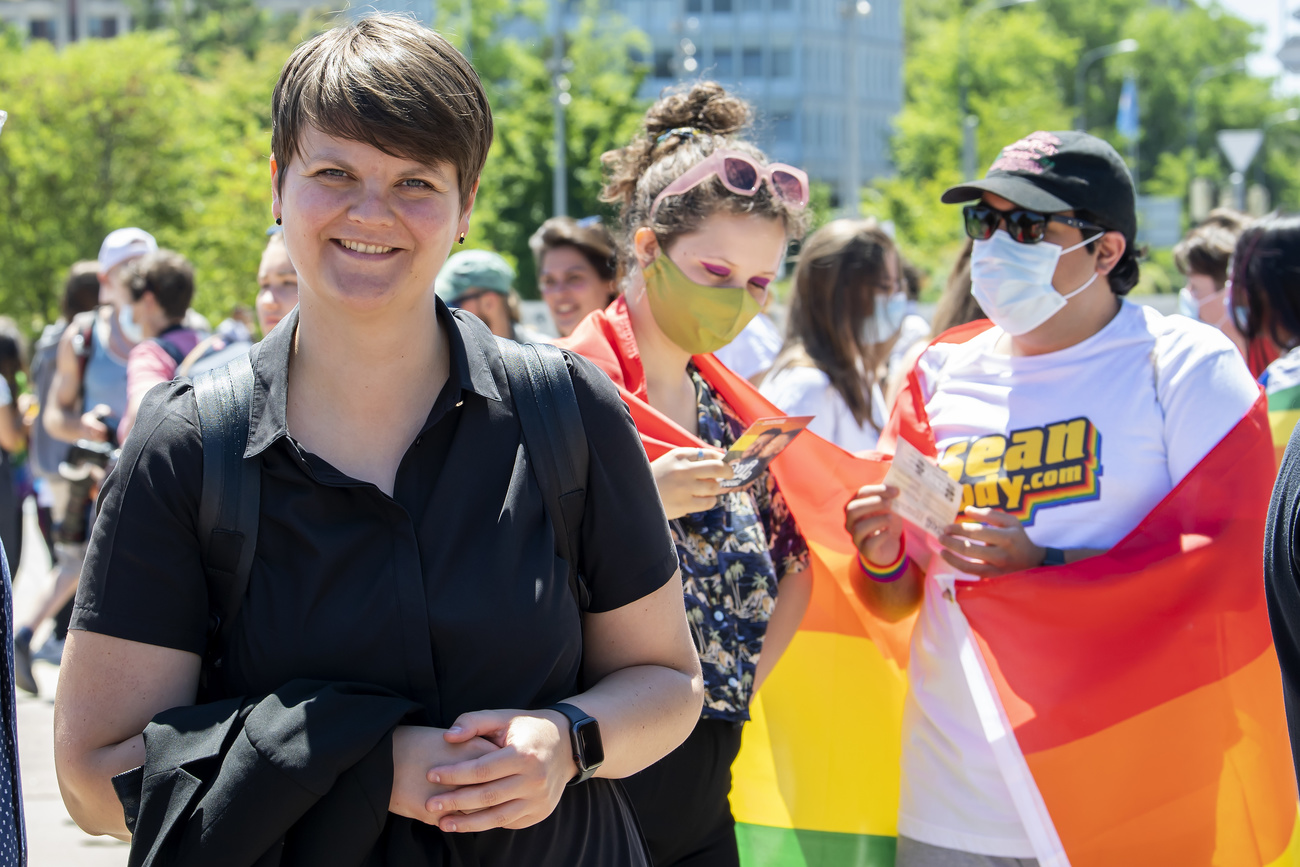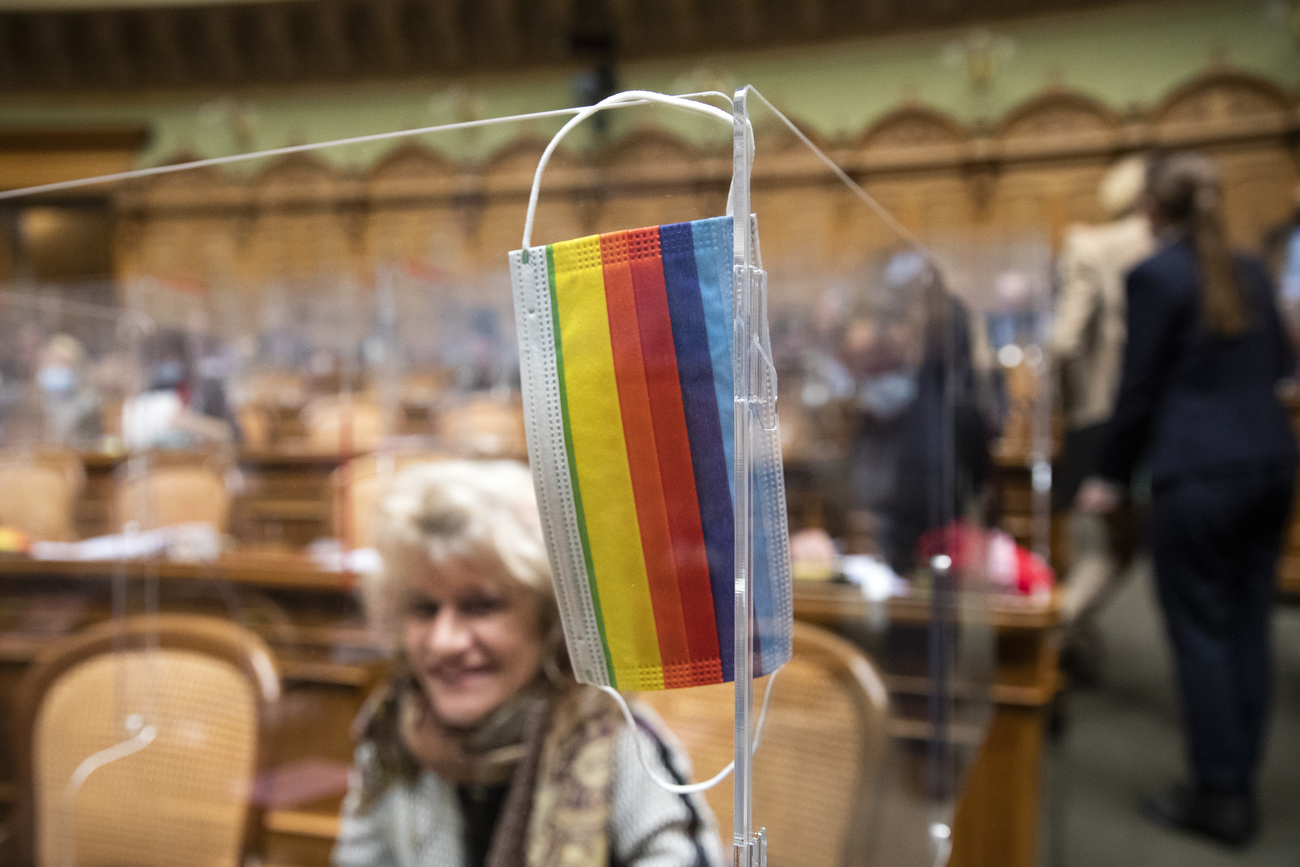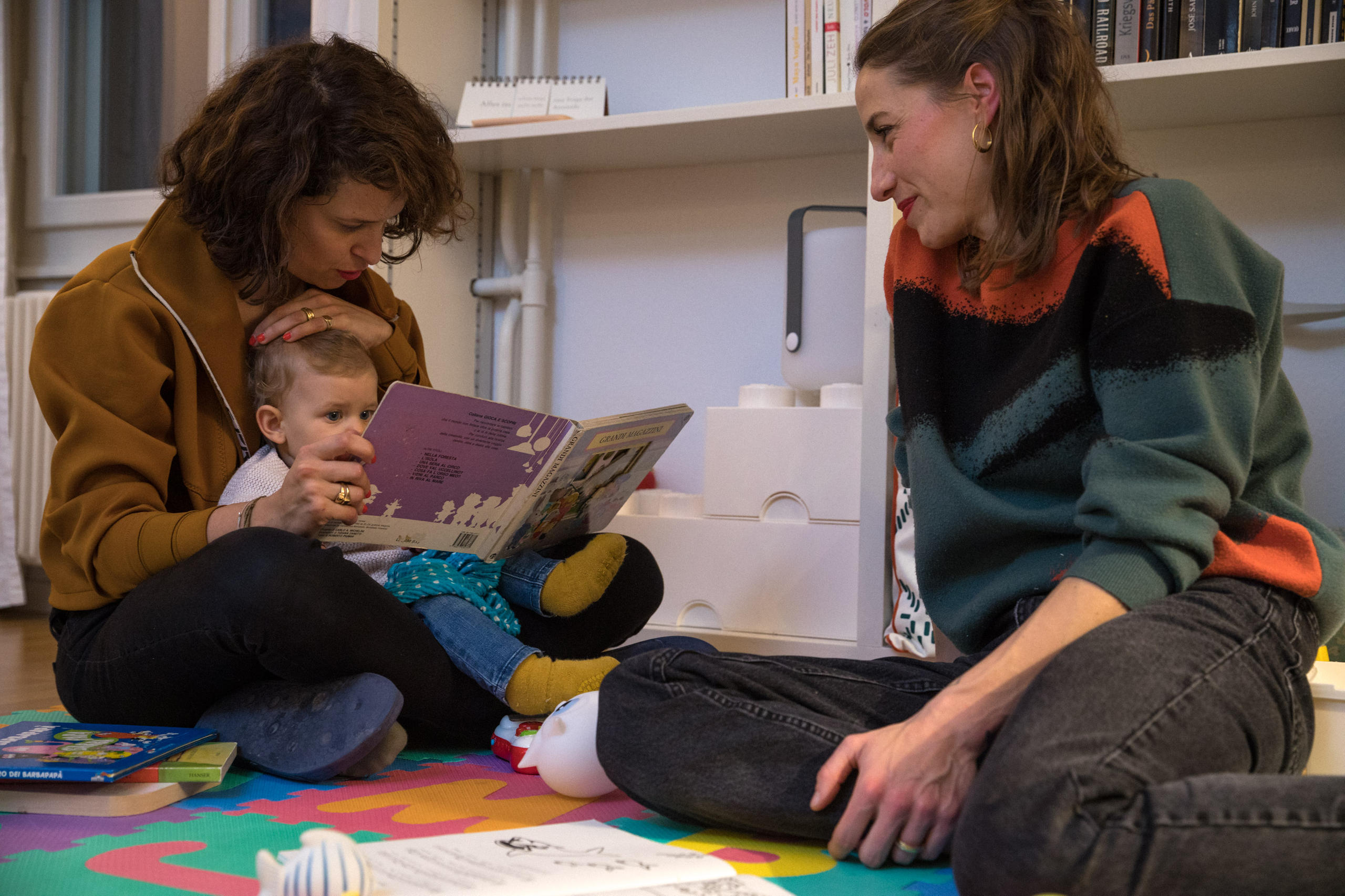‘Marriage for all just creates new kinds of inequality’

On September 26, Swiss voters will decide on the “marriage for all” bill, which includes a proposal to allow female couples access to assisted reproductive technologies. The Swiss Protestant Church has come out in favour, but some of its members are opposed. Retired pastor Gérard Pella is one of them.
Those opposed to “marriage for all” have not been much heard from, in contrast with proponents, who launched their campaign before the summer break. Gérard Pella, a retired pastor living in canton Vaud, dissents from his Church’s stated approval of marriage for all. He had already spoken outExternal link against the decision of the Protestant Reformed Church in Vaud to adopt a new rite to celebrate the union of homosexual couples in 2012.
SWI swissinfo.ch: What are your reasons for opposing marriage for all?
Gérard Pella: Personally, I have nothing against homosexuals. So this is not a matter of homophobia. Yet I am opposed to marriage for all for Biblical and ethical reasons. In the Bible, the human couple is clearly heterosexual. From an ethical standpoint, the new bill on marriage aims to correct an inequality, but in fact creates two more. Firstly, there will not be equality between men and women, because lesbians can have children, but not gay men. The most serious inequality concerns children of female couples conceived by means of assisted reproductive technology, because they will not have the right to a father and mother like other children.

More
‘Marriage for all is a huge step on the road to equality’
SWI: In Switzerland, thousands of children already live in families with homosexual parents. With marriage for all, they would benefit by the same legal framework as children living with heterosexual parents. Are they not better protected this way?
G.P: In my view, this will only increase the number of situations creating problems. It is well known how difficult it is for adopted children to find their identity. They often experience a crisis when they need to know who their biological father or mother is. These difficulties will crop up in familles of homosexual couples.
SWI: Since anonymous sperm donation is not allowed in Switzerland, children can find out the identity of the donor when they reach 18 if they wish. Is not this a guarantee that a child can find out his origins?
G.P: That is a technical response to the question of the child’s origins. However, a sperm donor is not a father.
SWI: At present, many children born of heterosexual parents are growing up with just one parent. Is this situation not similar?
G.P: In that kind of family configuration, there was more than a sperm donor involved. The situation is not really the same, though it’s a problem too, and assisted reproductive technology will just increase the number of such cases.

More
‘Marriage for all’ opponents hand in signatures for referendum
SWI: The Protestant Church has come out in favour of marriage for all. So you don’t share your own Church’s position?
G.P: My Church recognises that there is a variety of opinions and convictions within it. The majority decided to come out in favour of marriage for all. So I am in conformity with the Protestant Church, I just have a different view.
SWI: When the campaign was launched in favour of opening up marriage to same-sex couples, Justice Minister Keller-Sutter declared that “the state should not be dictating to people how to run their private and family life.” Do you not find that reasonable?
G.P: Indeed, the state provides a framework which protects everyone. That seems to me quite reasonable. As a citizen, one can then give one’s view on what is the most right.
SWI: 80% of people in Switzerland favour marriage for all, according to aExternal link study carried out by Pink Cross in 2020. Given these conditions, have opponents much chance of making their arguments stick?
G.P: I think the Swiss people can be convinced. But I think those opposed to the bill are keeping very quiet at the moment, and that worries me. The trouble is that it is hard to be against marriage for all. That has also been the case in our Church. Such a position is just not considered politically correct. So it might yet happen that a silent majority of the voters end up checking “no” on the ballot-paper.
SWI: Switzerland is one of the last countries in Western Europe not having opened marriage to homosexuals. Can it really afford to remain isolated on this issue?
G.P: I believe so. It would not be the only area where Switzerland goes its own way.
SWI: If marriage for all is accepted in Switzerland, can we expect to see a protest movement emerging, like “Manif pour tous” in France?
G.P: I don’t think so, because the Swiss voters will have been consulted, and exercised their democratic rights, which didn’t happen in France. I myself believe that it is important to have this debate. After that, the will of the people will have to be respected.
Translated from French by Terence MacNamee

More
Swiss government backs same-sex marriage ahead of vote

In compliance with the JTI standards
More: SWI swissinfo.ch certified by the Journalism Trust Initiative










You can find an overview of ongoing debates with our journalists here . Please join us!
If you want to start a conversation about a topic raised in this article or want to report factual errors, email us at english@swissinfo.ch.